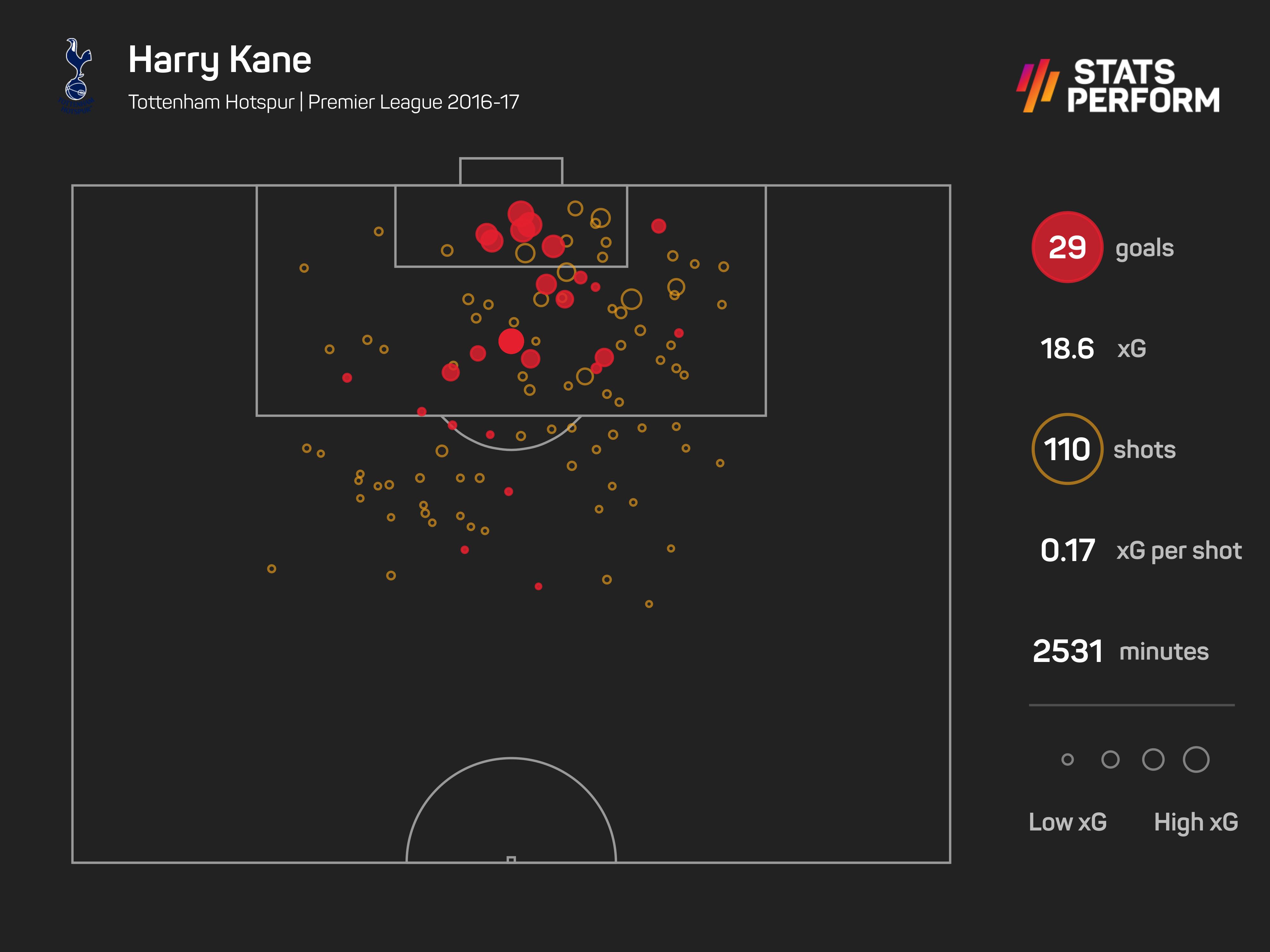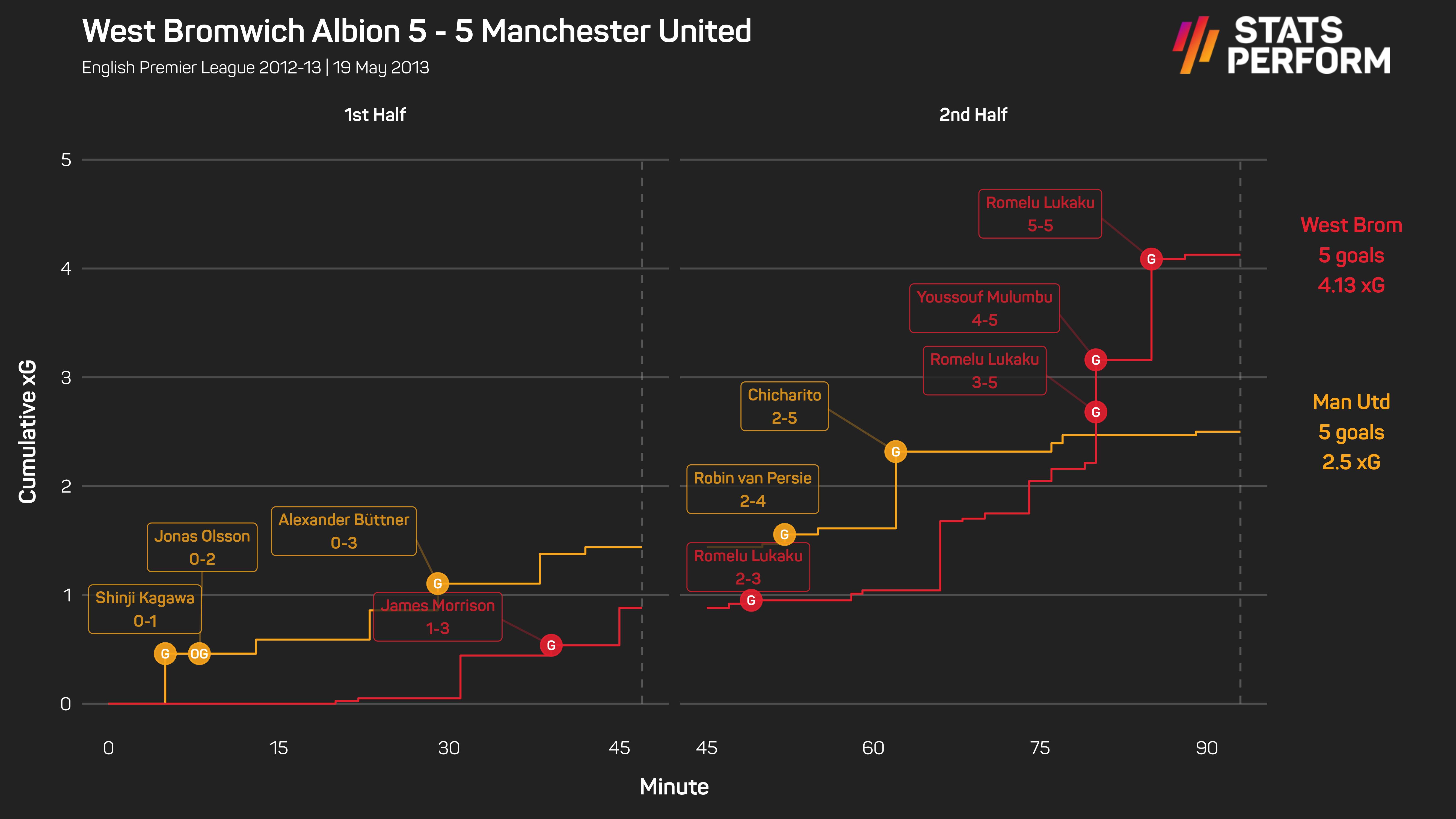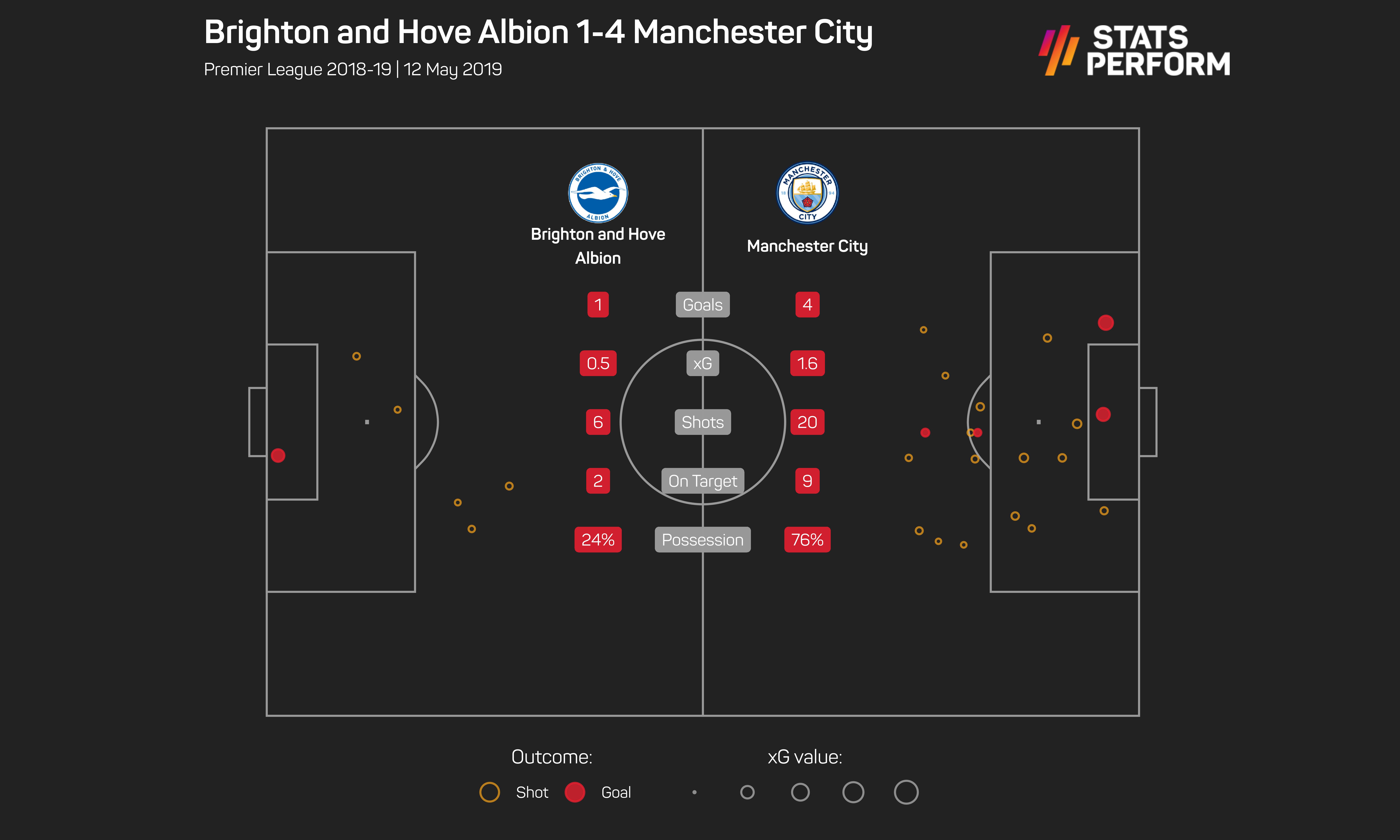There is no title race to be run or relegation battle to be won, but the Premier League always seems to deliver on its final day.
Indeed, the Opta data bears it out.
In 23 of the 28 Premier League campaigns prior to 2020-21, the average number of goals per game was higher on the final matchday than across the rest of the season.
Indeed, the highest-scoring date in the history of the competition (May 8, 1993) was part of the final matchweek of the Premier League's debut campaign.
There were 47 goals from just nine matches, with 53 across the 11 total games that weekend – or a staggering 4.8 per game.
Once the prizes are largely secured, the pressure's off, the sun's out (sometimes...) and the holidays – or major tournament flights – are booked, the goals tend to flow.
So, with scope for another final-day epic in 2020-21, as Leicester City host Tottenham and Everton go to Manchester City, we look back on the four highest-scoring last hurrahs – unfortunately discounting 1992-93, when not all top-flight teams played at the same time on the same date.
May 21, 2017: Spurs hit seven to complete stunning week (37 goals)
Had Tottenham played out a goalless draw at Hull City, in a match with nothing on the line, the final day of the 2016-17 season would have been only marginally above the campaign's average of 2.8 goals per game.
As it was, a 7-1 Spurs win made this the highest-scoring last day in the competition's history.
That result is unsurprisingly the biggest ever away win on a final day – although City's 5-0 demolition of Watford on the same afternoon ranks second – and Tottenham's most convincing victory on the road in the Premier League.
Remarkably, that club record had stood for only three days, with Mauricio Pochettino's men 6-1 winners at Leicester earlier in the same week.
Harry Kane scored four against the Foxes and three at Hull, becoming the first player since Wayne Rooney in 2011 to bag hat-tricks in consecutive Premier League games as he clinched the Golden Boot.
The England captain has seven final-day goals in the competition, including another two the following year in a 5-4 win... against Leicester – Sunday's opponents.

May 19, 2013: Fergie farewell finishes with five apiece (36 goals)
Tottenham's nine-goal thriller against Leicester in 2018 is merely joint-second among final-day fixtures for the most goals in a game. The top spot belongs to a ludicrous 2013 draw.
West Brom 5-5 Manchester United is the highest-scoring draw in Premier League history, the sole such example of two sides evenly sharing 10 goals.
And it was a fitting end to an Alex Ferguson tenure at United that was rarely dull, with his side – champions for the 13th time in his premiership – leading 3-0 and then 5-2.
Future Red Devil Romelu Lukaku hit a hat-trick, though, and West Brom incredibly claimed a point.
Although Kane's against Hull in 2017 was the most recent example of a final-day treble, Lukaku had company in 2013 as Kevin Nolan also scored three in a 4-2 West Ham win over Reading.
Meanwhile, this was the 11th of 13 occasions on which a player has scored a hat-trick in a draw in the Premier League. The 10th had also come courtesy of a West Brom player on a final day, as Somen Tchoyi stunned Newcastle United in 2011.

May 12, 2019: City take title again but avoid frantic finish (36 goals)
Already champions this term, City know a thing or two about last-day title triumphs and the Premier League will do well to ever see a victory as dramatic as that of 2011-12.
However, one scenario that might come close would see the team starting the day in second go away with the silverware. For all the customary entertainment on the season's closing weekend, that has never happened in the Premier League.
In fact, there have only been eight examples of a team falling into the relegation zone right at the last – and none since 2011 – and a single occurrence of the team in fifth breaching the top four. That was Arsenal leapfrogging Tottenham in 2006, although Leicester will hope to join them on Sunday.
Therefore it should have come as little surprise in 2019 that City protected their narrow advantage over Liverpool at the top, even though the leaders briefly trailed at Brighton and Hove Albion.
A 4-1 comeback win sealed Pep Guardiola's second success and he boasts a 100 per cent record on the final day.
The only other manager never to have dropped a point on the last matchweek while overseeing four or more such games is Chris Coleman, all from his time as Fulham boss.

May 11, 2008: City smashed and Reading rout unrewarded (34 goals)
Crucially, Guardiola has never had to face Middlesbrough on the final day as City manager. Boro have a bizarre hold over the Etihad Stadium outfit at this time of year.
In 2004-05, as David James appeared in attack, Robbie Fowler's failure to score from the spot in stoppage time took Boro into Europe at City's expense. Three years later, it was even worse.
Although City still qualified for the UEFA Cup through the UEFA Fair Play ranking, their season ended with a humiliating 8-1 defeat at the Riverside – at the time the biggest loss on a final day and still City's heaviest in the Premier League, all while rivals United won the title.
Yet the real drama was at the foot of the table, as Fulham's triumph meant Reading and Birmingham City were relegated, at least, much like Buzz Lightyear, falling with style thanks to respective 4-0 and 4-1 victories over Derby County and Blackburn Rovers.
Five other teams have won on the day they have been relegated from the Premier League, but never two in the same season, let alone the same day, and never as emphatically as Reading.
The Royals were at least by then used to scoring four times and going away disappointed. This was the third occasion on which they had done so in 2007-08 and, remarkably, they had lost the prior two matches – 7-4 at Portsmouth and 6-4 at Tottenham.




















